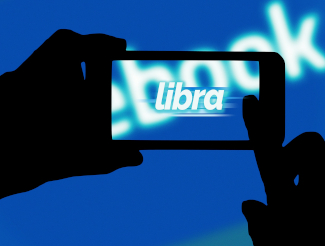When Facebook first went public with its Libra cryptocurrency project, it was met with widespread disapproval from legislators and regulators around the world. The backlash was severe, with legislators threatening to hold hearings and introduce legislation to stop Libra, regulators expressing skepticism that Libra could comply with existing regulations, and even international organizations piling on against Libra. As a result, Libra has been out of the news for months as Facebook laid low. But if you thought Libra was dead in the water, you’d be wrong. It’s still around, but it’s been reworked and will look far different than its initial plans.
Whereas the initial concept of Libra was that of a cryptocurrency token backed by a basket of national currencies, Libra is now open to creating stablecoins backed by only a single national currency. That would essentially make it no different than existing stablecoins, or even payment systems such as Paypal, which essentially convert dollars or dollar-denominated bank deposits into Paypal deposits that are treated basically as cash.
Libra is essentially trying to rebrand and repurpose itself, hoping that by changing how it operates it will be able to gain the approval of regulators. It has changed the proposal it first offered to regulators in Switzerland, where Libra is headquartered, and just recently hired a new CEO, Stuart Levey, who was a top anti-money laundering (AML) official under both the Bush and Obama administrations. That’s a clear indicator that Facebook has learned from early backlash and will now try to stack Libra’s organization with insiders who can smooth the approval process with regulators.
Some legislators and regulators will undoubtedly still opposed Libra just because it’s a Facebook project. And apparently the status of Libra as a currency versus a security is still a sticking point with some, so don’t be surprised to see the Securities Exchange Commission (SEC) adding its two cents at some point during the process. But Libra is far from dead.
Of course, the question for Libra, as with central bank digital currencies (CBDCs), is will anyone use it? Or will it remain a currency that most users only spend within Facebook? With Bitcoin, Litecoin, Ethereum, and other cryptocurrencies on the one hand, and CBDCs on the other, is there really a use case for Libra that will allow for its greater adoption? Bitcoin is already established as both a currency and an investor asset, so what does Libra really offer? Only time will tell.
This article was originally posted on Coin IRA.





